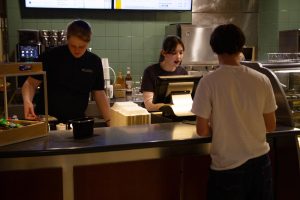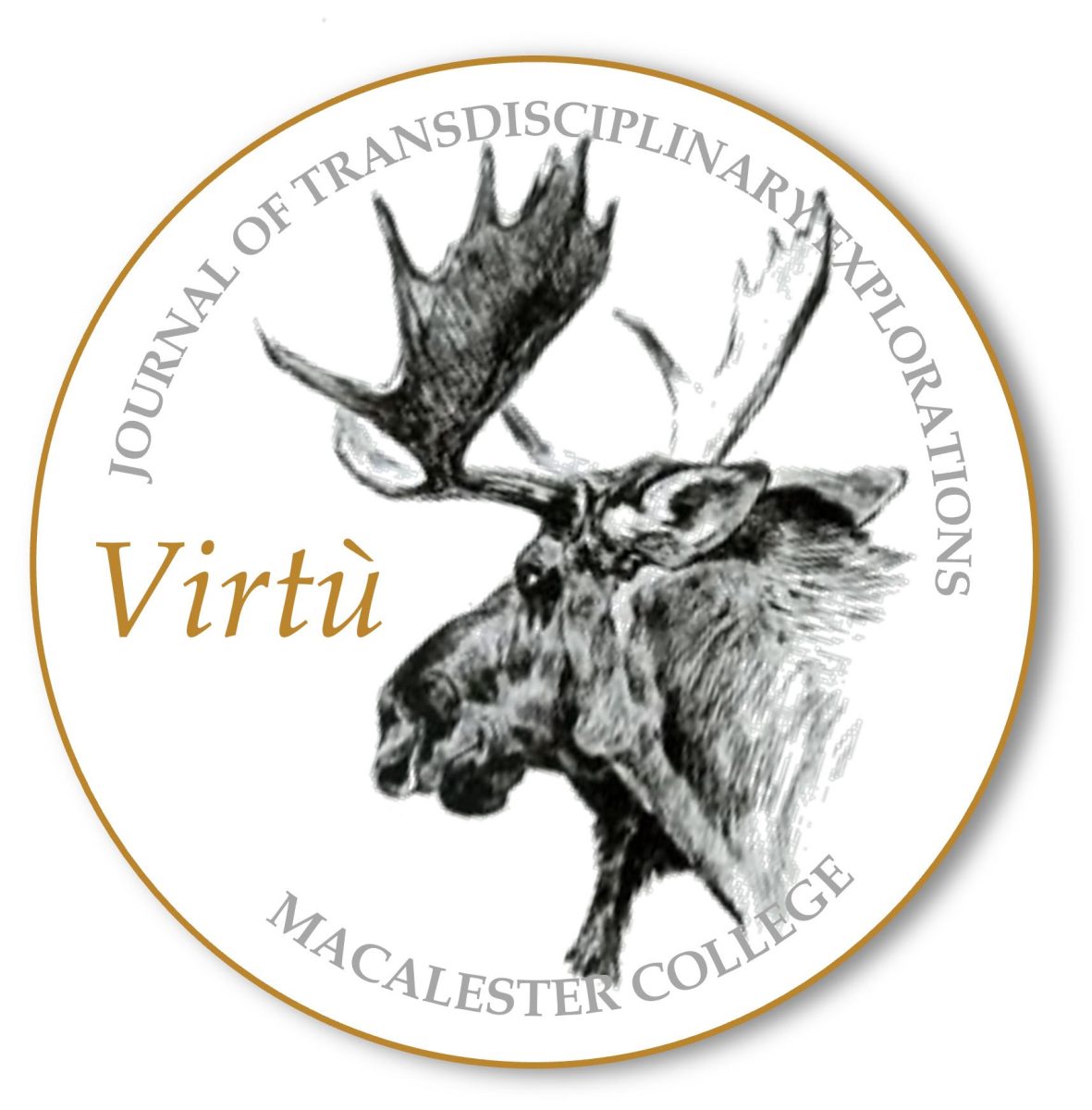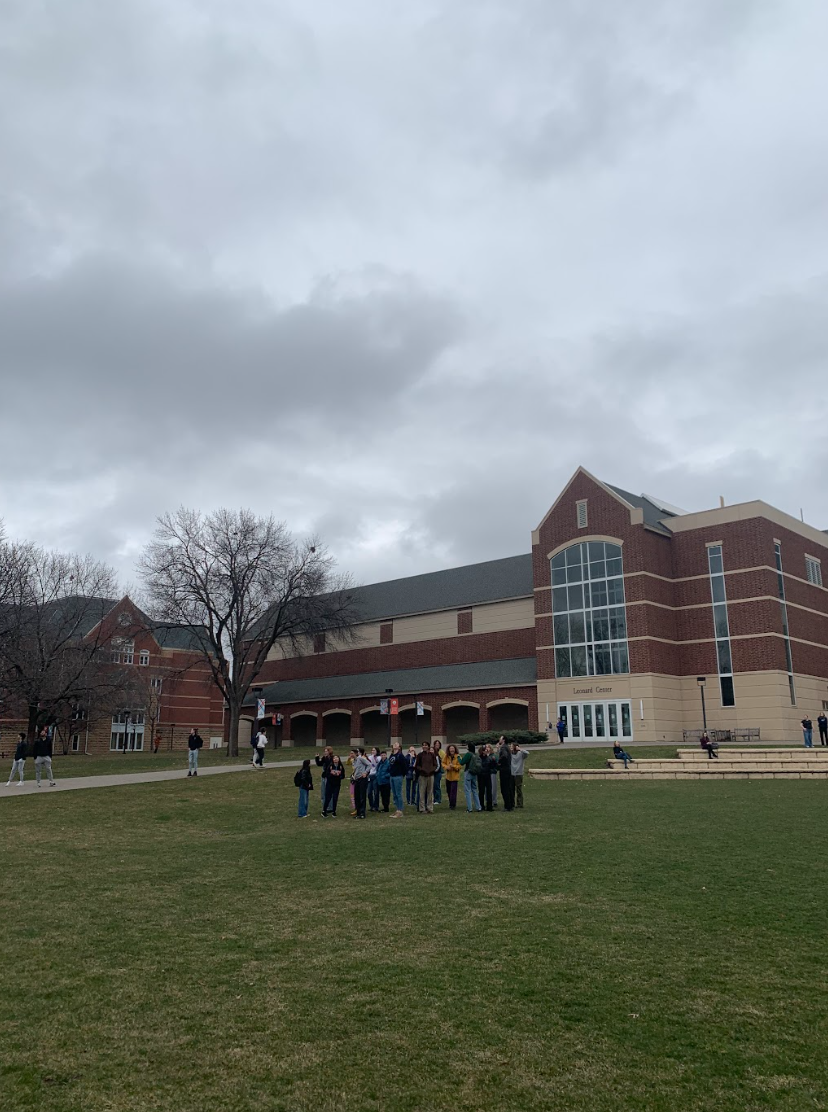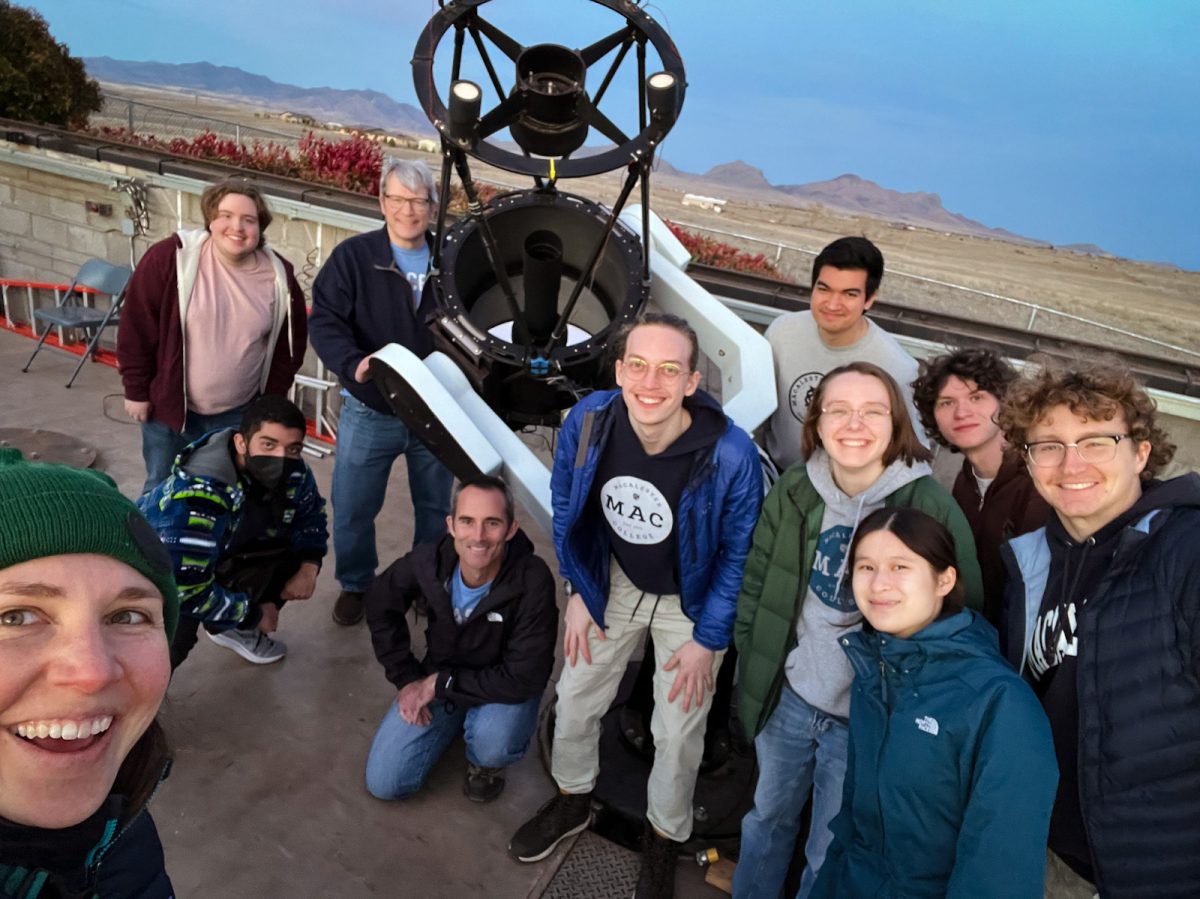
Kristi Curry Rogers
Department: Biology and Geology
Expertise: “I’m a vertebrate paleontologist specializing in dinosaur biology.
“I grew up in a small town in southern Missouri, and decided at a young age that I wanted to study paleontology ‘when I grew up.’ I left home for Montana when I was 17, and completed a B.Sc. in Biology at Montana State University. From there I went on to do a Ph.D. in Anatomy at Stony Brook University. Along the way, I met my husband (Ray Rogers, Geology), and eventually moved here when we got married. I worked for a few years as the curator of paleontology at the Science Museum of Minnesota, and eventually moved to a tenure track position in Biology and Geology at Macalester.
“I started teaching at Macalester in 2002, when I served as a sabbatical replacement for a geology professor and taught GEOL 101 Dinosaurs. I taught this class each year while I was curator at the Science Museum (I also spent a lot of time as curator giving public lectures on dinosaurs!). So, all told (if you don’t count baton twirling lessons to kids!), I’ve been teaching since the early 2000s!
“I love teaching the amazing students here at Macalester—just today, in my Origins class, I was thinking about how lucky I was to have students who were asking so many interesting (and occasionally off-the-wall) questions! I also love that, as a professor, I get to continually learn new things—whether it is creating new information with my own research, or learning some interesting new thing about how lampreys breathe in my anatomy class—there is no room to ever feel bored when your mind’s constantly being fed!
“Having job security is great and I feel that I breathe a little easier about life in general now that I’m tenured. But in terms of teaching and research, they are exactly the same—I still feel the same passion about both that I felt before tenure, and still want to do the best job I can at both. It’s just nice to know that my students and colleagues valued my contribution enough to keep me around! … Being a professor is the best job on earth. Seriously.”
John Cannon
Department: Physics and Astronomy
Expertise: “I am an observational astronomer. I study galaxies that are physically smaller and less massive that our own Milky Way, using data from telescopes around the world. Some of my favorite toys are the Very Large Array in New Mexico and the Hubble Space Telescope.
“Born and raised in Iowa, attended the University of Iowa and studied physics & astronomy as an undergraduate. Went to graduate school in astrophysics at the University of Minnesota, and then completed two post-doctoral research appointments (the first at the Max Planck Institute for Astronomy in Heidelberg, Germany, and the second at Wesleyan University in Middletown, CT).
“I have been teaching at Macalester since 2007. Prior to that, I taught some courses at Wesleyan and at the University of Minnesota. But I feel like I have been telling people about how amazing astronomy is for my whole life.
“I would be hard pressed to identify only one favorite thing about Macalester. If I had to pick, I would probably say that I enjoy helping students to become scientists. We do this in a way that few other liberal arts institutions can.”
Looking forward to: “I am excited to spend my sabbatical leave working on various research projects.
“The tenure process was humbling. It was very surreal to see all of the efforts of your career compressed down into a neat stack of paper.”
Sarah Boyer
Department: Biology
Research: Describing new species of mite harvestmen—tiny Daddy long legs found under decaying leaves in Australia.
Boyer grew up in London, Ontario, in a family full of professors. She received her undergraduate degree from Swarthmore College in Pennsylvania, her Masters from University of California Berkeley and her PhD from Harvard University.
Boyer has been teaching at Mac for seven years. She loves the liberal arts community and the opportunity to do research with undergraduate students. Boyer was drawn to Macalester because she wanted to be in the city and craved a liberal arts community similar to Swarthmore’s.
Looking forward to: She plans to spend her sabbatical writing research papers on her field work in the Australian wet tropics, funded by the National Science Foundation.
Devavani Chatterjea
Department: Biology, Community and Global Health
Research: Development of T cells—a type of white blood cell involved in the immune system—in mice. Specifically, Chatterjea works on developing such lymphocytes in bone marrow and in the thymus gland. She is also working with Mac Professor Lin Aanonsen on a research project studying chronic inflammatory pain responses.
Chatterjea grew up in India, moving to the United States to attend Mount Holyoke College in Massachusetts. She then received her PhD from Stanford University and began to work for Genotek, a biotech company specialized in DNA collection.
Chatterjea has been teaching here for seven years, and her favorite thing about Mac is “seeing a physicist and an anthropologist on the same short walk across campus,” she said. Chatterjea likes the community’s tremendous range of perspectives. Another favorite is the lab research with Mac students. Chatterjea has worked with more than 40 Macalester students so far, and she loves the collaborative spirit. She says the students transform the experience—from sometimes-tedious to always-fun—with unfettered imagination and relentless perseverance.
Looking forward to: She plans to spend her sabbatical writing grants, working on her Master’s degree in Public Health at the University of Minnesota, exploring course design to integrate more hands-on active learning into her classroom. And of course, lab work with Mac students.
Kathryn Splan
Department: Chemistry
Expertise: “I primarily teach introductory chemistry and upper-level biochemistry … My research is in the field of bioinorganic chemistry, which studies the role that metal ions play in biological processes.
“I’m from Duluth, MN and it is great to be back in MN for my career and be close to family and friends from high school and college. I did my undergrad degree at the University of Wisconsin-Eau Claire and my PhD in chemistry at Northwestern University. After postdoc positions at Duke University and the University of Minnesota, I started at Macalester.
“I have been at Macalester since fall 2007. I have been very happy at Macalester, in large [thanks] to the great students and faculty here. I enjoy working with students both in the classroom and research lab and am impressed with their level of dedication to their education. The diversity at Macalester is also very unique, and it’s great to work with students from so many different backgrounds. I also feel fortunate to work with colleagues that are great teachers and scholars and supportive co-workers. Finally, I value Macalester’s urban location, and appreciate living near enough to campus to walk in every day.”
Looking forward to: “Continuing my teaching and research and contributing more to leadership roles at the college.”
Christina Esposito
Department: Linguistics
Expertise: “I’m a phonetician, meaning that my area of expertise is sounds—how we articulate them, how we perceive them, how they are different across (or even within) a language. More specifically, I study something called phonation. That refers to the quality of our voice when we speak.
“I grew up in New York. I did my undergraduate degree at the State University of New York (SUNY), Albany, where I majored in linguistics and anthropology. After that, I went straight to graduate school at UCLA. While I was finishing my dissertation, I applied for the job at Mac—it was my first real job interview. And, well, the rest is history!
“I first started teaching as a graduate student in 2002. I have been at Mac since September 2006.”
Favorite thing about Mac: “My students! This is absolutely true. They are so fascinated by linguistics. Sometimes we talk about other things, but the conversation always turns back to linguistics.”
Looking forward to: “I would really love to teach a first year course on dialects, where incoming freshmen would record themselves before coming to college and we could see how much their dialect changes over the course of a semester (or even over their four years at Mac).”
Andrew Beveridge
Department: Mathematics, Statistics & Computer Science
Expertise: “I study the interplay of randomness and strategy. The yin and the yang of it: (1) what strategy should we use to guide random process to a desired outcome? and (2) how can we use a random strategy to obtain a desired outcome?”
“I grew up in New York City and went to Williams College. I was deeply inspired by the Williams math department, but I also loved the small liberal arts environment. I am really grateful to have ended up at a place so kindred.
“I’ve taught for nine years: six at Mac and three at Carnegie Mellon. I also had a prodigal son phase as a software engineer in Silicon Valley.
“I cherish the sense of community [at Macalester]. That community spans all three of the populations on campus: students, staff and faculty. Those meaningful connections really stood out when I first arrived.”
Looking forward to: “Chad Topaz (also in MSCS) recently found a paper that combines our very different research fields: swarming and random network models. It will be fun to see if we can find some common ground to play on.”



















Theodore Ciprian • Jul 22, 2019 at 11:20 pm
Mass parsite http://bit.ly/2W9CVkn